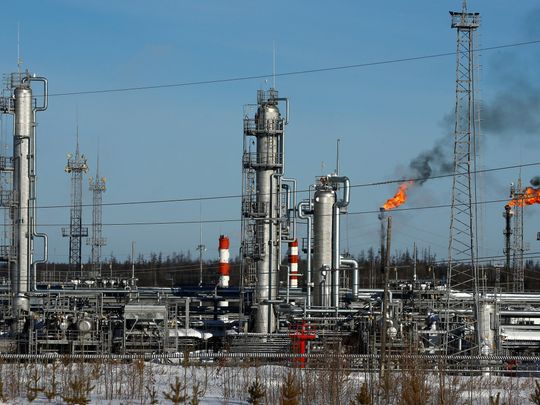
Seoul: A week after the US flagged tighter sanctions on Iranian crude and spurred oil higher, prices are back down to where they were before the announcement.
Investors are trying to assess how Opec and its allies will respond when US waivers that allowed buyers to continue importing Iranian oil expire on May 2. While the White House says other producers have pledged to make up for any shortfall, top exporter Saudi Arabia’s been less emphatic. International Monetary Fund data show the kingdom needs crude at about $85 a barrel — well above current levels — to balance its budget this year.
Crude’s losing its momentum after surging to a six-month high following Washington’s announcement that it won’t renew waivers from its sanctions. There’s a “good chance” Opec and its allies will choose to extend their supply curbs to the year’s end when they meet in June, though they may make some changes to the current deal, according to BNP Paribas SA. Meanwhile, US President Donald Trump has renewed calls on the group to pump more.
“Oil stayed out of the limelight overnight following the Trump-induced sell-off on Friday,” Jeffrey Halley, senior market analyst at Oanda Asia Pacific Ltd. in Singapore, said in a note. Both WTI and Brent “have made a decent correction lower, and oil seems content to consolidate and adopt a wait-and-see attitude for now,” he said.
West Texas Intermediate for June delivery was at $63.36 a barrel on the New York Mercantile Exchange, down 14 cents, at 9:50am in Singapore. The contract closed 0.3 per cent higher at $63.50 on Monday, snapping a three-session decline.
Brent for June settlement, which expires Tuesday, fell 28 cents to $71.76 a barrel on the London-based ICE Futures Europe exchange. The contract slipped 0.2 per cent on Monday, after topping $75 last week. The global benchmark crude was at a premium of $8.41 to WTI. The more-active July contract was down 0.4 per cent, dropping for a fifth session.












